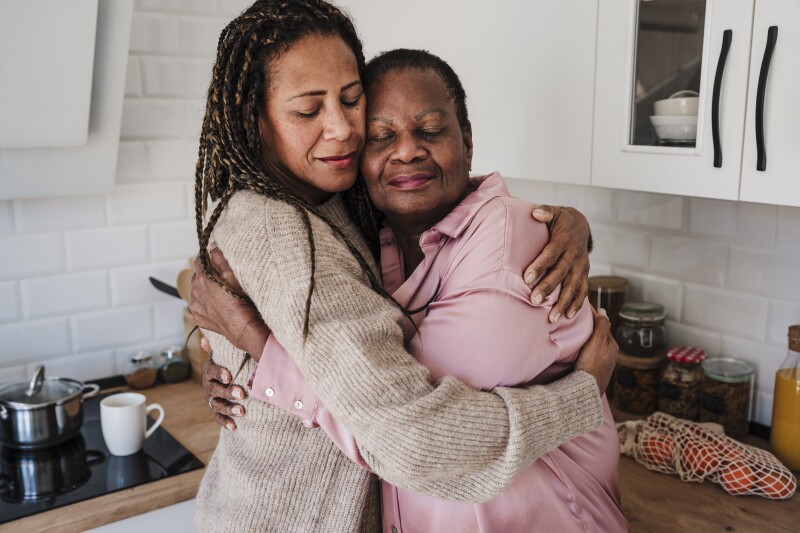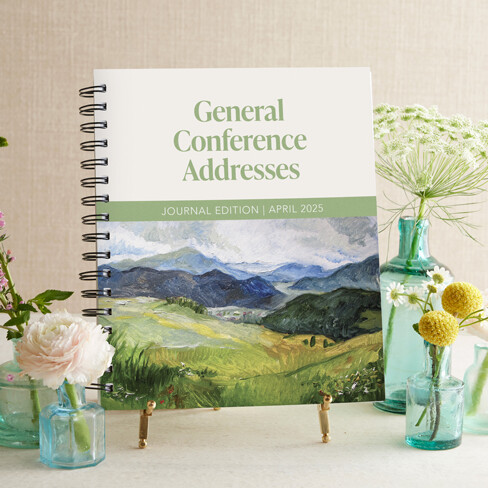Years ago, during one of my first book signings, I was approached by a kind, older gentleman who wanted to talk.
He wasn’t a member of the Church, but his good wife was. Through wet eyes, he asked me an unexpected question: “Please, how can I help my wife not worry about me?”
They’d had a happy marriage for decades, except when it came to church. He was happy and liked his life. He loved God and believed in Jesus, but he simply didn’t believe the church was true and never was baptized. He was content in his faith. She wasn’t. She’d prayed and fasted for him for years. The longer he didn’t believe, the more worried she got. She was afraid of what their life would look like in the eternities.
There was no anger in his voice, just love, as he said something like, “She spends so much time being afraid that she’s forgotten how to love me.”
This conversation has floated up to the surface many times over the years, and each time it seems to come with more meaning in my life.
I am a worrier.
I don’t suffer from generalized anxiety, but when it comes to those I love, I can worry with the best of them.
As my children grew into adulthood, my worry seemed to grow with them. Especially when they moved out of my home and daily influence.
Then I came across a revelatory line in Sister Tamara W. Runia’s most recent general conference talk, “Seeing God’s Family through the Overview Lens” that changed me.
Sister Runia had made some choices in high school which led her mom to worry. “I remember seeing my mom crying, and I wondered if I’d disappointed her. At the time, I worried that her tears meant she’d lost hope for me, and if she didn’t feel hope for me, maybe there wasn’t a way back.”
Then she said this: “But my dad was more practiced at zooming out and taking the long view. He’d learned from experience that worry feels a lot like love, but it’s not the same. He used the eye of faith to see that everything would work out, and his hopeful approach changed me.” (emphasis added.)
▶ You may also like: Elder Andersen’s sweet advice to a young father fearing his children will leave the Church
Worry, though it feels a lot like love, isn’t the same.
This is what that good man in the bookstore years ago wanted his sweet wife to know.
It’s what I needed to know.
What did this mean to me?
How I show love started to look different. It looked more like empathy than judgment. It looked more like having faith in the person’s ability to figure things out than doubting them. It looked more like trusting in the Lord and His Atonement than doubting His ability to consecrate their experiences for their good. It looked more like inviting than chasing. It looked more like hope than worry.
Nowhere in the scriptures does it say we are meant to worry. But it does say we are commanded to let love of God and others be our guiding principle (see John 13:34–35).
Some of you have loved ones who are in the middle of serious struggles—ones brought on by themselves, others, or simply life’s circumstances. Perhaps they are making choices that have kept them from accepting the gospel, or have led them away from the gospel, or even led them away from you. It’s hard not to hurt or worry for them and to let that worry drive us to follow them, criticize them, or shut them out.
But, as Sister Runia so beautifully expressed, “Our job is not to teach someone who’s going through a rough patch that they are bad or disappointing. On rare occasions, we may feel prompted to correct, but most often let’s tell our loved ones in spoken and unspoken ways the messages they long to hear: ‘Our family feels whole and complete because you are in it.’ ‘You will be loved for the rest of your life—no matter what.’”
I think about the man I met in the bookstore often. Did he or his wife change? Was his wife ever able to let go of her worry and fear? Were they able to happily love each other in their own individual choices? I have no idea.
But I do know that I have changed since then. I am striving to give my worry over to the Lord and let my faith in Him and those I love lead the way.
This life is far bigger than we can fathom. But God can. In the end, every knee shall bow and every tongue shall confess that Jesus is the Christ (see Philippians 2:10–11). This means the end of everyone’s path is Jesus. Every one. This is the business of the Savior. He is in the business of saving.
We are asked to be in the business of loving God and others. For when we love Him and stay by Him, He can help us love others regardless of whether they are by the tree, up the tree, or on the other side of the orchard.



